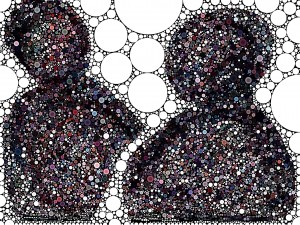
 So I read a book recently and I loved some parts of it and other parts…not so much. And I’ve been thinking about it ever since because there was one part of it I just adored but I don’t feel like I could tell anyone to read the book without a big “hey and you should watch out for this” addendum. I’d bounced off a previous book by this author with what was supposed to be grimdark but had a big ol’ weirdly ungrimdark gendered cliché early on that made me think so hard about it that I couldn’t pay attention to the rest of the book, so I was already a little cautious, yet optimistic because I knew the author to be a good writer.
So I read a book recently and I loved some parts of it and other parts…not so much. And I’ve been thinking about it ever since because there was one part of it I just adored but I don’t feel like I could tell anyone to read the book without a big “hey and you should watch out for this” addendum. I’d bounced off a previous book by this author with what was supposed to be grimdark but had a big ol’ weirdly ungrimdark gendered cliché early on that made me think so hard about it that I couldn’t pay attention to the rest of the book, so I was already a little cautious, yet optimistic because I knew the author to be a good writer.
I’ve talked before about reading when the protagonist is markedly not you, and how used to it women — and other members of the vast majority the mainstream media calls Other — become. And this was a good example of a very young, very male, very heterosexual book. Which God knows I’m not opposed to. I remain a huge fan of the Warren Murphy and Richard Sapir Destroyer series and Doc Savage was a big influence on me, growing up.
So why did this book hit me so hard in an unhappy place? Because it was so smart and funny and beautifully written and involved connected stories about a favorite city and magic, which are three of my favorite things. And because it had a chapter that was one of the best short stories about addiction that I’ve read, and that left me thinking about it in a way that will probably shape at least one future story.
And yet. And yet. And yet. Women were either powerful and unfuckable for one reason or another or else fell into the category marked “women the protagonist sleeps with”, who usually didn’t even get a name. Moments of homophobic rape humor, marked by a repeated insistence on the sanctity of the hero’s anus, and a scene in which he embraces being thought gay in order to save himself from a terrible fate, ha ha, isn’t that amusing. And I’m like…jesus, there is so much to love about this book but it’s like the author reaches out and slaps me away once a chapter or so.
...
 The following is an expansion of a piece I wrote for a Book Smugglers roundtable.
The following is an expansion of a piece I wrote for a Book Smugglers roundtable.
Recently — or perhaps not so recently — much has been made of women writing science fiction. Often it’s coupled with a complaint about “PC” behavior stifles creativity or how leftist writing “has no new ideas.”
Hmm. Speaking as an unabashed leftist and someone lacking a penis, which may bias me somewhat, in my experience the opposite is true. I find much more interesting stuff in those who are willing to question the status quo, rather than simply write fiction using the same old stories, but this time with lasers! or infinity drives! or whatever. As Patty Jansen put it recently in her blog post, “There are girl cooties on my spaceship — on women writing hard SF,” “There are many younger readers out there who do not want their SF with sauce of sexist golden age nostalgia.”
To talk about this, though, I need to mention a book I’ve been recently reading, David Zindell’s Neverness. It’s a terrific book with some amazing writing in it. Here, for example, is a passage from page 23, which I love for its ability to seed in information about societal structures while describing a crowd:
“We received our pilot’s rings late in the afternoon of the next day. At the center of Resa, surrounded by the stone dormitories, apartments, and other buildings of the college, the immense Hall of the Ancient Pilots overflowed with the men and women of our Order. From the great arched doorway to the dais where we journeymen knelt, the brightly colored robes of the academicians and high professionals rippled like a sea of rainbow silk. Because the masters of the various professions tended to cleave to their peers, the rainbow sea was patchy: near the far pillars at the north end of the Hall stood orange-robed cetics, and next to them, a group of akashics covered from neck to ankle in yellow silk. There were cliques of scryers berobed in dazzling white, and green-robed mechanics standing close to each other, no doubt arguing as to the ultimate (and paradoxical) composition and nature of the spacetime continuum, or some other arcanum. Just below the dais was the black wavefront of the pilots and master pilots. I saw Lionel, Tomoth and his brothers, Stephen Caraghar and others that I knew. At the very front stood my mother and Justine, looking at us — I thought — proudly.”
Great stuff, yeah? And at the same time, I find the book puts me, as a female reader, in an odd position. The women in the book so far are either relatives or love interest, and their defining characteristics seem somewhat odd: the male protagonist’s mother’s defining characteristic is that she’s chubby from eating too many chocolate candies, while much is made of his aunt’s sexual rapacity.
In a novel, often the main point of view is our lens for the book. If the book were a first-person shooter game, this is the character one maneuvers through the game. Women are used to having this male perspective imposed on them; we’ve been reading those narratives ever since we started reading.
...

The main character usually changes in some way over the course of the story, but that change must feel organic and natural. You can set up a big change of mind with foreshadowing and having them change on some smaller matter, showing that such change is possible, so it doesn’t throw the reader out of the story when it occurs.
We discussed approaches to learning more about your characters. I recommended the book Writing The Other by Nisi Shawl and Cynthia Ward, which talks about writing characters who are a different sex, race, or class background than yourself. I also recommended people-watching and reading pop psychology (or even more sciencey stuff, which will provide all sorts of story ideas.
One of the quickest ways to turn an editor off is with improperly punctuated dialogue, so learn the rules and use them. We went over things like speech tags, how to punctuate internal dialogue, why you don’t need to come up with a bunch of synonyms for “said,” and how to make voices distinctive. I suggested that people watch the wonderful adaptation of Terry Bisson’s “They’re Made Out of Meat” – here is the original text, and here is the film made from it.
If you really want to focus on dialogue, read good plays, which are pure dialogue. If you want to write in a particular historical voice, one of the best ways is to read deeply in that period so you absorb it. Doing so may make you aware how much what we read and watch creeps into our writing – that’s one very good reason to read some high quality stuff now and again.
Enjoy this writing advice and want more like it? Check out the classes Cat gives via the Rambo Academy for Wayward Writers, which offers both on-demand and live online writing classes for fantasy and science fiction writers from Cat and other authors, including Ann Leckie, Seanan McGuire, Fran Wilde and other talents! All classes include three free slots.
Prefer to opt for weekly interaction, advice, opportunities to ask questions, and access to the Chez Rambo Discord community and critique group? Check out Cat’s Patreon. Or sample her writing here.
...
Want access to a lively community of writers and readers, free writing classes, co-working sessions, special speakers, weekly writing games, random pictures and MORE for as little as $2? Check out Cat’s Patreon campaign.

"(On the writing F&SF workshop) Wanted to crow and say thanks: the first story I wrote after taking your class was my very first sale. Coincidence? nah….thanks so much."

(Fiction, short story) The thing is, I was never a hero. The first wave of aliens taught me that. The war with them – my older brothers became heroes there, one died in the stand-off at Ucer-25, and we never did discover what happened to the other. My parents celebrated them both, burned scarlet and gold candles that made the house smell like flaming trees and sulphur, every weekend without fail…


This site is protected by reCAPTCHA and the Google Privacy Policy and Terms of Service apply. This site is a participant in the Amazon Services LLC Associates Program, an affiliate advertising program designed to provide a means for sites to earn advertising fees by advertising and linking to Amazon.com.